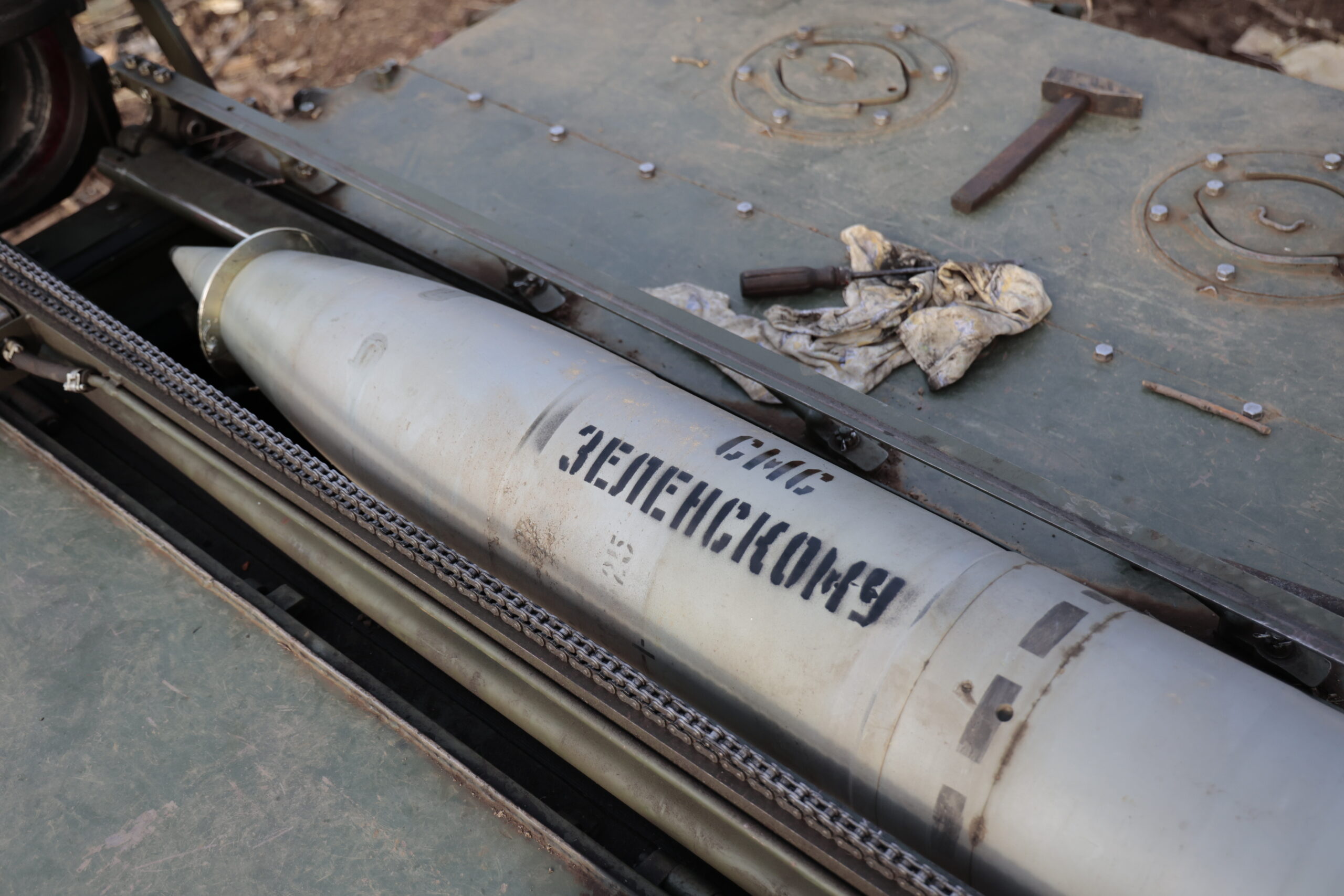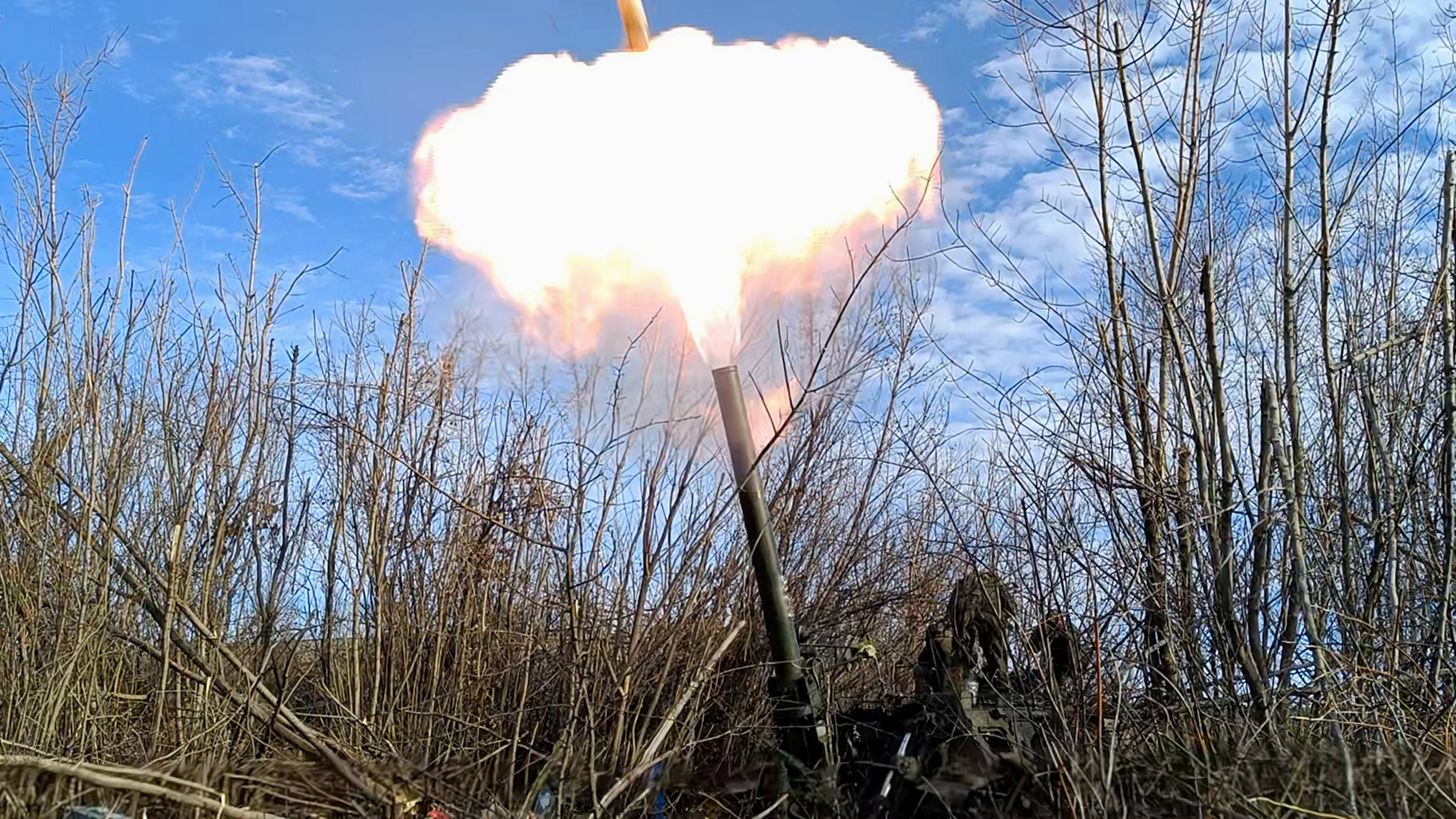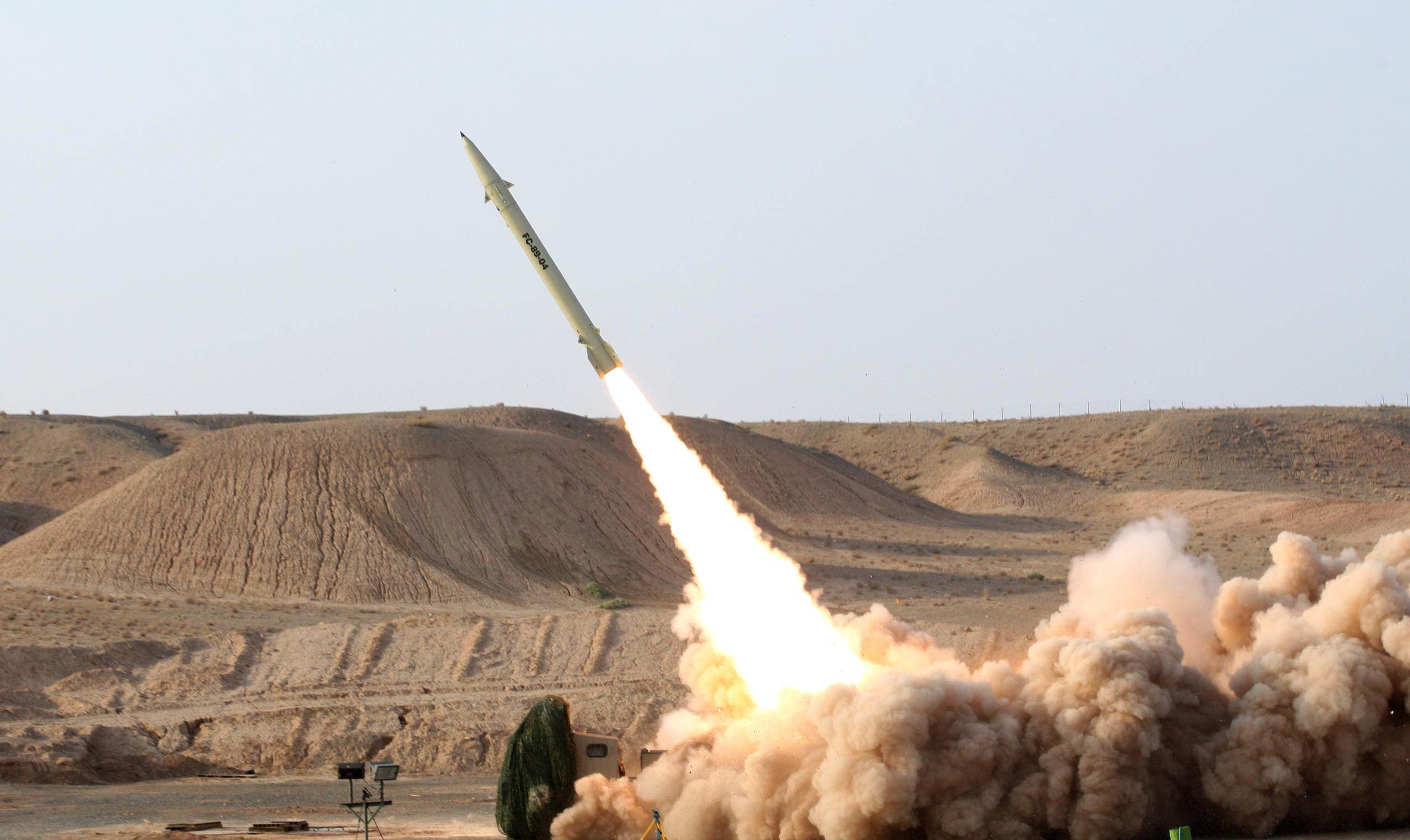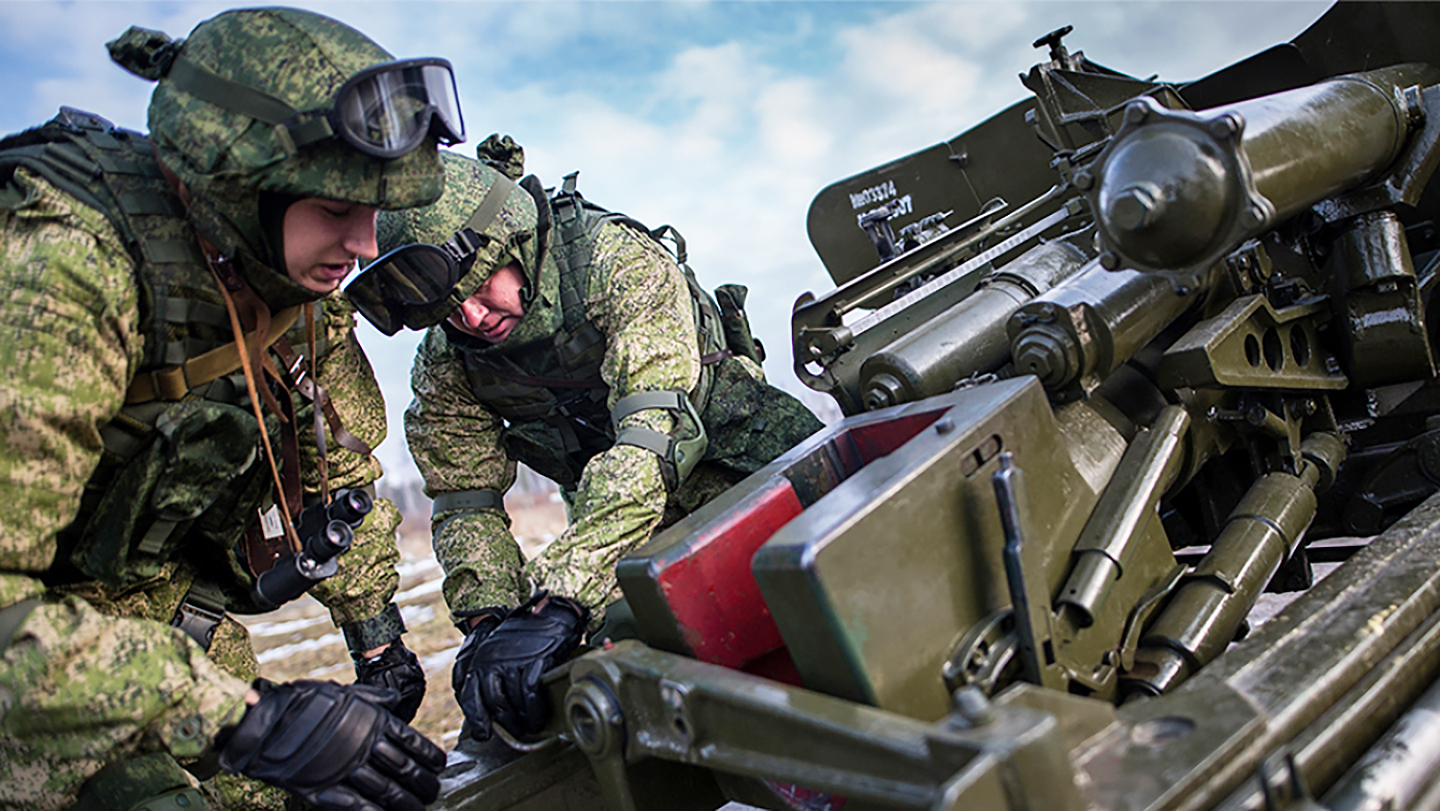Russia is increasingly relying on degraded, potentially dangerous-to-handle artillery and rocket rounds – in some cases produced more than four decades ago – as its stocks of new munitions are depleting after more than nine months of full-on war in Ukraine, according to the Pentagon.
The Russian stocks of what the Pentagon calls “fully serviceable” or new artillery and rocket rounds will likely last until early next year, a senior U.S. defense official told reporters, including from The War Zone, Monday.

But those stocks are “rapidly dwindling, probably forcing them to increasingly use ammunition in what we would consider degraded conditions,” the official said, speaking on condition of anonymity. “So this essentially puts Russian forces in a position to have to make a choice about what risks it’s willing to accept in terms of increased failure rates, unpredictable performance, and whether or not these degraded munitions would require any type of refurbishment, which of course requires a certain amount of expertise at times.”
Russian reliance on older ammunition has resulted in a lot of duds, or worse, said the official.
“You load the ammunition and you cross your fingers and hope it’s going to fire,” the official said. “Or wherever it lands that it’s going to explode.”

Russia has “drawn from its aging ammunition stockpile, which does indicate that they are willing to use that older ammunition some of which was originally produced more than 40 years ago,” the official said.
As a result, “the Russian military will very likely struggle to replenish its reserve of fully serviceable artillery and rocket ammunition through foreign suppliers, increased domestic production and refurbishment.”
That’s why Russia is turning to Iran and North Korea “to try to obtain some more dependable ammunition,” the official said.
But Russia may no longer be able to count on Iran to provide short-range ballistic missiles (SRBMs), a shift which Ukrainian intelligence officials said had been anticipated to take place last month.
Iran, fearing an international backlash, “wants to limit the range of the missiles it plans to provide Russia for the war in Ukraine, four senior Israeli officials told Axios, citing intelligence reports.”
The U.S. position is that such transfers of arms from Iran to Russia violate UN Security Council resolution 2231, which among other things calls for any Iranian nuclear, ballistic missile or arms transfers to be approved by the U.N.
In an effort to mitigate the international fallout and not violate that resolution, “Iran plans to give Russia only missiles with a range of less than 300 kilometers and modify other missiles so they stay within the parameters of the resolution, the Israeli officials said,” according to Axios.
This includes the Fateh-110 missile system, which has a range of 300 kilometers, but, according to the report, “the Iranians plan to modify it so that it doesn’t violate the resolution, according to the Israeli officials.”

The Iranians had also considered sending Russia the Zolfaghar missile, with a range of about 435 miles, but are no longer planning to, according to Axios.
You can read more about Iran’s SRBMs and its previous plans to ship them to Russia in our coverage here. We will have to wait and see if these reports of an altered export strategy for the missiles prove accurate.
Meanwhile, on Monday, British Defense Minister Ben Wallace said his nation was not ruling out sending longer-range munitions to Ukraine than the Guided Multiple Launch Rocket System (GMLRS) for the M142 High Mobility Artillery Rocket Systems, or HIMARS and M270 multiple launch rocket systems (MLRS) provided by the U.S. and allies.
So far, those launchers, which have had a major impact on the battlefield already, fire M30A1 and M31A1 227mm precision-guided rockets, which have advanced fragmentation and unity high-explosive warheads respectively. Both types have a stated maximum range of at least approximately 43.5 miles (70 kilometers).
To date, the U.S. has declined to provide Ukraine with any variant of the Army Tactical Missile System (ATACMS) short-range ballistic missile that would greatly extend the range the country could hold Russian targets at risk of missile attacks. It can also destroy larger, more heavily fortified targets across its up to nearly 200-mile range.
But Monday, Wallace said if Russia continues to attack Ukraine’s civilian infrastructure, he will keep an “open mind” on the systems Britain will provide Ukraine.
Such attacks, he said, are “against all the rules of law, including the Geneva Conventions” and constitute “war crime[s].” He stated that the attacks should “not go unpunished. I constantly review the weapon systems we could provide.”
“We too have in our armory potential weapon systems that are longer [range], and should the Russians continue to target civilian areas and try and break those Geneva conventions then I will be open-minded to seeing what we do next.”
What exactly he is referring to isn’t clear. Storm Shadow cruise missiles, a highly advanced air-launched weapon, and submarine-launched Tomahawk cruise missiles are the only types in inventory that immediately come to mind. Tomahawk is a non-starter and Storm Shadow would be a major escalation in capabilities if offered to Ukraine in some form.
Before going into the latest news from Ukraine, The War Zone readers can get caught up on our previous rolling coverage here.
The Latest
On the battlefield, there’s “particularly intense fighting nearby in the Donbas region, where Russian forces are conducting offensive ground operations in an attempt to take the city” of Bakhmut, a senior U.S. defense official said. Fighting remains heavy and the Russians have made some incremental gains in taking territory, however, Ukraine continues to hold Bakhmut, which has been devastated by the fighting.
“For a while now, Russia has been pouring in troops and equipment into that region, it had been very focused on it for a while,” the official said. “That was happening concurrently with the Ukrainian counter-offensive happening in the Kharkiv and Kherson regions. So … the fact that there’s intense fighting there is not necessarily new, but for whatever reason, we continue to see Russia prioritize this particular area. And as I’ve mentioned, they’ve taken some incremental amount of territory – not a lot. But for obvious reasons, Ukraine continues to hold the line and defend its city that’s under attack here.”
The assault on Bakhmut has come at a high cost and fits in with the way “that Russia has prosecuted this campaign,” the official said. “Their way of combat is through heavy artillery strikes and throwing forces at the problem. I don’t have numbers to provide, but we’ve certainly seen the reports of significant casualties.”
“Meanwhile, in the Kharkiv, and Kherson regions, the Ukrainians continue to consolidate their previous gains while Russian forces bolster their defensive lines,” the official said.
Here are some key takeaways from the latest Institute for the Study of War assessment.
- The Russian Ministry of Defense (MoD) denied rumors on Dec. 11 that Gen. Valery Gerasimov resigned or was removed from his position as Chief of the General Staff.
- Ukrainian and Russian sources reported that fighting continues along the Svatove-Kreminna line in the Luhansk Oblast and near Lyman in the Donetsk Oblast amidst poor weather conditions.
- A Russian milblogger claimed that Russian forces transferred over 200 pieces of equipment from the Kherson direction to the Kupyansk direction, and geolocated footage shows Russian T-90 tanks in Luhansk Oblast headed west. A Ukrainian official stated that a larger Russian force grouping does not currently pose a threat.
- Russian forces made marginal territorial gains around Bakhmut as Russian and Ukrainian sources reported continued fighting in the area. A Ukrainian Armed Forces Eastern Group spokesperson stated that Russian forces changed tactics from using battalion tactical groups (BTGs) to smaller assault groups for offensive actions.
- Russian and Ukrainian sources claimed that Ukrainian forces struck Skadovsk, Hola Prystan, Oleshky, and Nova Kakhovka, Kherson Oblast, all along major Russian logistics lines.
- Ukrainian officials reported that Russian occupation authorities intensified forced mobilization measures in occupied Ukraine.
Russian forces also continue to dig in on the Crimean peninsula they’ve occupied since 2014. Up until recently a tourist hot-spot, Crimea’s waterfront has recently seen the construction of trenches being built by Russian forces. Ukrainian officials have made no secret about their intentions to recapture Crimea, which has seen a spate of drone and sabotage attacks as of late. Clearly, Russia is preparing for potential raids from the sea.
Even Russian propagandist and war criminal Igor Girkin is expressing doubt that Russian fortifications can hold back a Ukrainian advance.
One potential eventual route of attack on Crimea will be from the east, through the Zaporizhzhia Oblast, which may be the next target of a Ukrainian counterattack. Perhaps to that end, the Russian-occupied town of Melitopol in that oblast has come under attack and the first images of a destroyed bridge there emerged on social media.
Melitopol was also the scene of an apparent Ukrainian HIMARS attack on a Wagner Group barracks in a hotel that resulted in a varying number of deaths. Russian officials claimed just two while a former Ukrainian mayor claimed “scores,” according to the BBC.
HIMARS remains a feared weapon of choice by Ukraine.
Tanks are still playing a major role on the battlefield, too. The Ukraine Weapons Tracker OSINT group shared a rare video of a tank-on-tank battle in the Luhansk Oblast, in which a Ukrainian T-64BV tank obliterated a Russian T-72B tank with just one shot.
And Ukraine continues to land precision drone hits on Russian forces.
The Russians too are causing destruction, including military hardware donated to Ukraine.
Three British-supplied Mastiff armored vehicles were seen damaged or destroyed in recent fighting.
Equipment continues to be captured on both sides, like this Finnish Sisu XA-185 armored personnel carrier that was donated to Ukraine.
Russia apparently continues to struggle to supply its mobilized reservists with even the most basic of supplies.
And when Russian troops do get supplies, it’s apparently not always what is really needed.
And finally, when the war is eventually over, Ukrainian President Volodymyr Zelensky says he hopes to visit the seacoast and have a beer.
At least that’s what the former comedian told another famous comedian.
You can hear all that and more on the latest episode of David Letterman’s My Next Guest Needs No Introduction. His interview with Zelensky, which took place in October 300 feet underground on a Kyiv subway platform, aired Monday.
That’s it for now.
We will update this story if there is anything major to add until our next new update is posted.
Contact the author: howard@thewarzone.com

